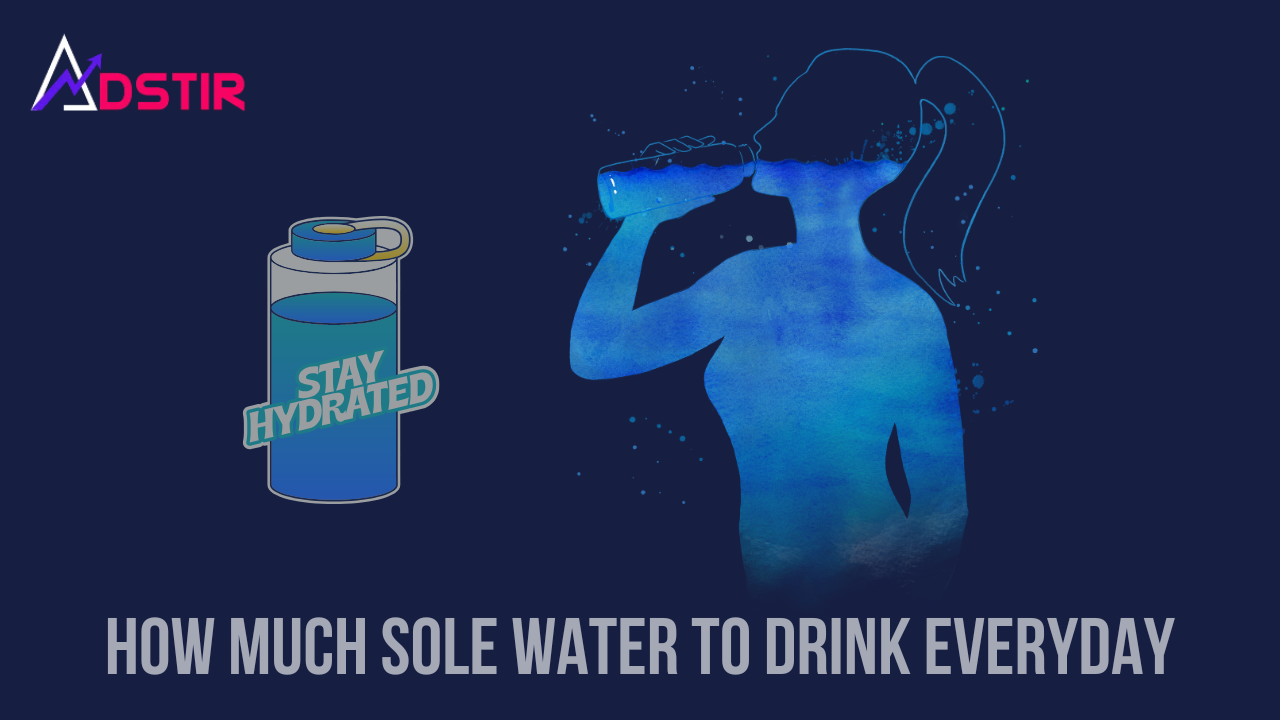How Much Sole Water to Drink Everyday – The recommended amount of sole water to drink daily is one teaspoon mixed in a glass (8 ounces) of regular water each morning. This small quantity is enough to provide essential minerals like sodium, magnesium, and potassium without overloading the body with salt. Sole water is often consumed to support hydration, improve digestion, and maintain electrolyte balance.
Drinking too much sole water can lead to excessive sodium intake, which may cause dehydration, high blood pressure, or kidney strain. Since Himalayan salt is rich in minerals, a concentrated solution like sole water should be consumed in moderation. Overconsumption can disrupt the body’s natural sodium balance and may have negative health effects, especially for individuals sensitive to salt.
People with high blood pressure, kidney disease, or heart conditions should consult a doctor before consuming sole water. Since it contains a high amount of sodium, it may not be suitable for those who need to limit their salt intake. While sole water is considered beneficial for some, it is not a medical treatment and should be used as a supplement rather than a replacement for a balanced diet and proper hydration.
General Guidelines
- Recommended Daily Intake: Drink one teaspoon of sole water mixed in a glass (8 ounces) of regular water each morning on an empty stomach.
- Moderation is Key: Excessive consumption can lead to high sodium intake, causing dehydration, high blood pressure, or kidney strain.
- Who Should Avoid It: People with hypertension, kidney disease, or heart conditions should consult a doctor before drinking sole water.
- Preparation Method: Fill a glass jar with one-fourth Himalayan salt and add filtered water until full. Let it sit for 12 to 24 hours until fully dissolved. If salt remains undissolved, the solution is ready.
- Dilution is Important: Always dilute one teaspoon of the prepared sole water in a glass of plain water before drinking. Never drink the concentrated mixture directly.
- Not a Water Replacement: Sole water should be used as a supplement, not a substitute for regular hydration and a balanced diet.
- Listen to Your Body: If you experience bloating, dizziness, or other discomforts, reduce intake or stop consumption and consult a healthcare professional.
Potential Benefits of Sole Water
Sole water is believed to help with hydration by replenishing lost electrolytes, making it useful for individuals who sweat a lot or engage in regular physical activity. It may also aid in digestion by stimulating stomach acid production, which can help break down food more efficiently. Additionally, some people report improved energy levels and better sleep due to the trace minerals present in Himalayan salt.
Another claimed benefit is its alkalizing effect, as some believe it helps balance the body’s pH levels. However, scientific evidence supporting this claim is limited. While the minerals in sole water are beneficial, it is important to note that these minerals can also be obtained from a balanced diet rich in fruits, vegetables, and whole foods.
Possible Side Effects
Drinking too much sole water can lead to sodium overload, which may cause bloating, water retention, and increased blood pressure. If consumed in large amounts, it can also lead to dehydration rather than hydration, as excess salt draws water out of the body’s cells. Some people may experience digestive discomfort, such as nausea or an upset stomach, especially if they have a sensitive digestive system.
For those new to drinking sole water, it is best to start with a smaller amount and gradually increase if needed, always paying attention to how the body responds. If any negative symptoms appear, reducing or stopping intake is recommended.
Sole Water vs. Regular Water
It is essential to understand that sole water should not replace regular water intake. While it may offer additional minerals, plain water is still the best way to stay hydrated throughout the day. Sole water should be used as a supplement rather than a primary source of hydration. The key is balance—combining sole water with a nutritious diet and proper hydration habits ensures the body gets all the necessary nutrients without excessive sodium intake.
Conclusion
Sole water can be a beneficial supplement when consumed in moderation, providing essential minerals and supporting hydration.Drinking sole water in moderation may help with hydration, electrolyte balance, and digestion, but it should never replace regular water intake.However, excessive intake can lead to health risks, especially for those with high blood pressure or kidney issues.
Also Read: How Climate Change Is Killing Cities
